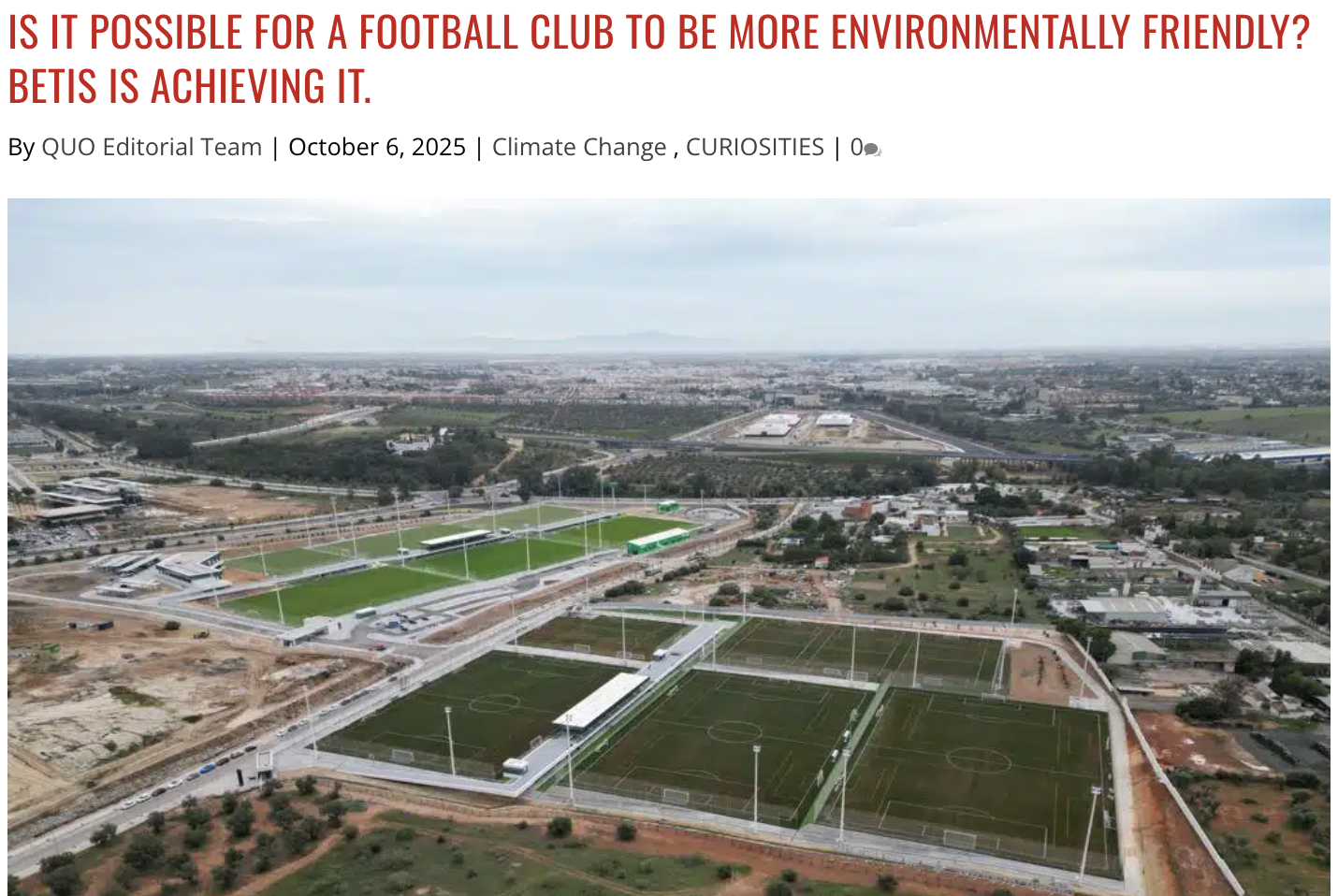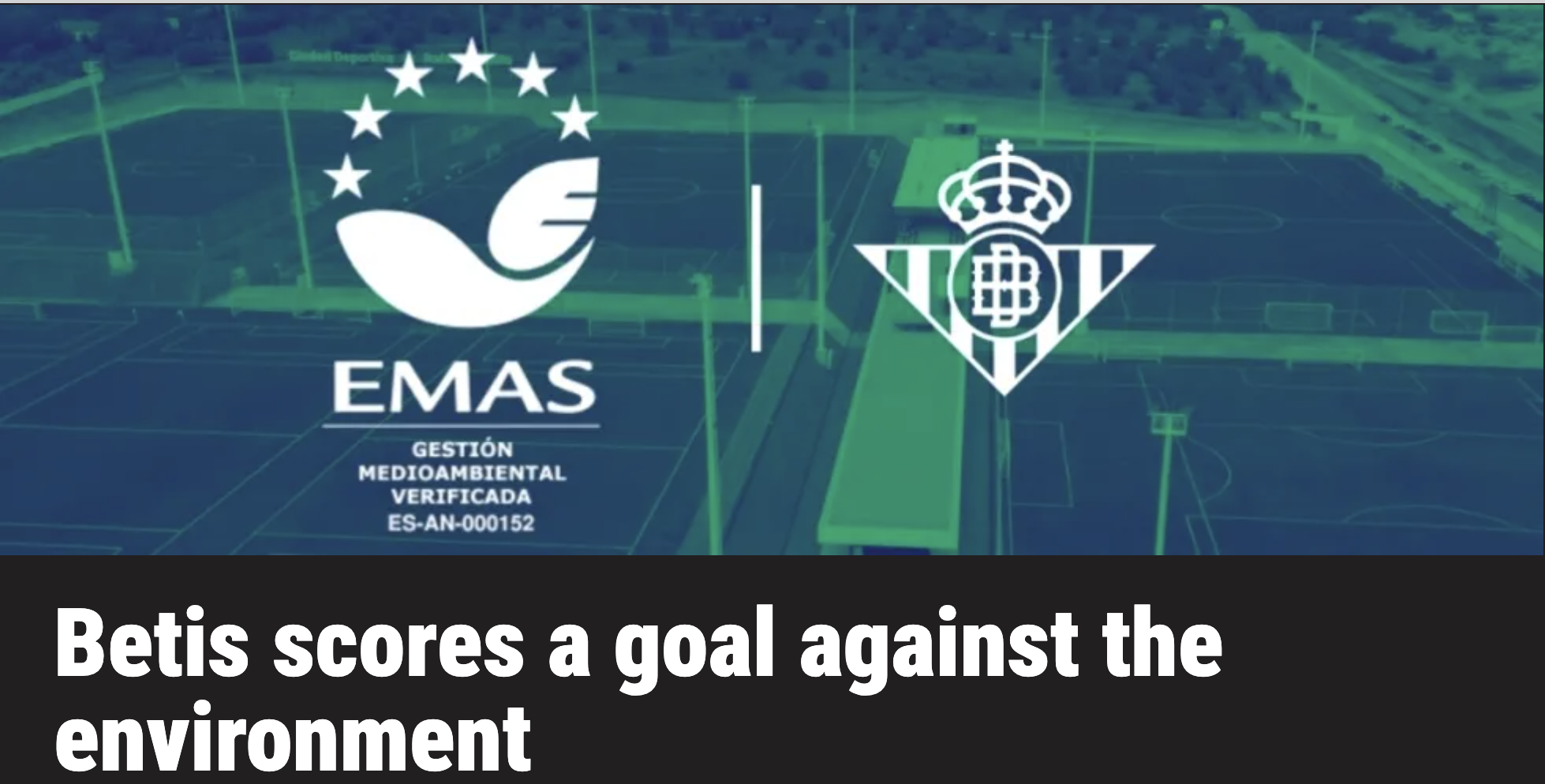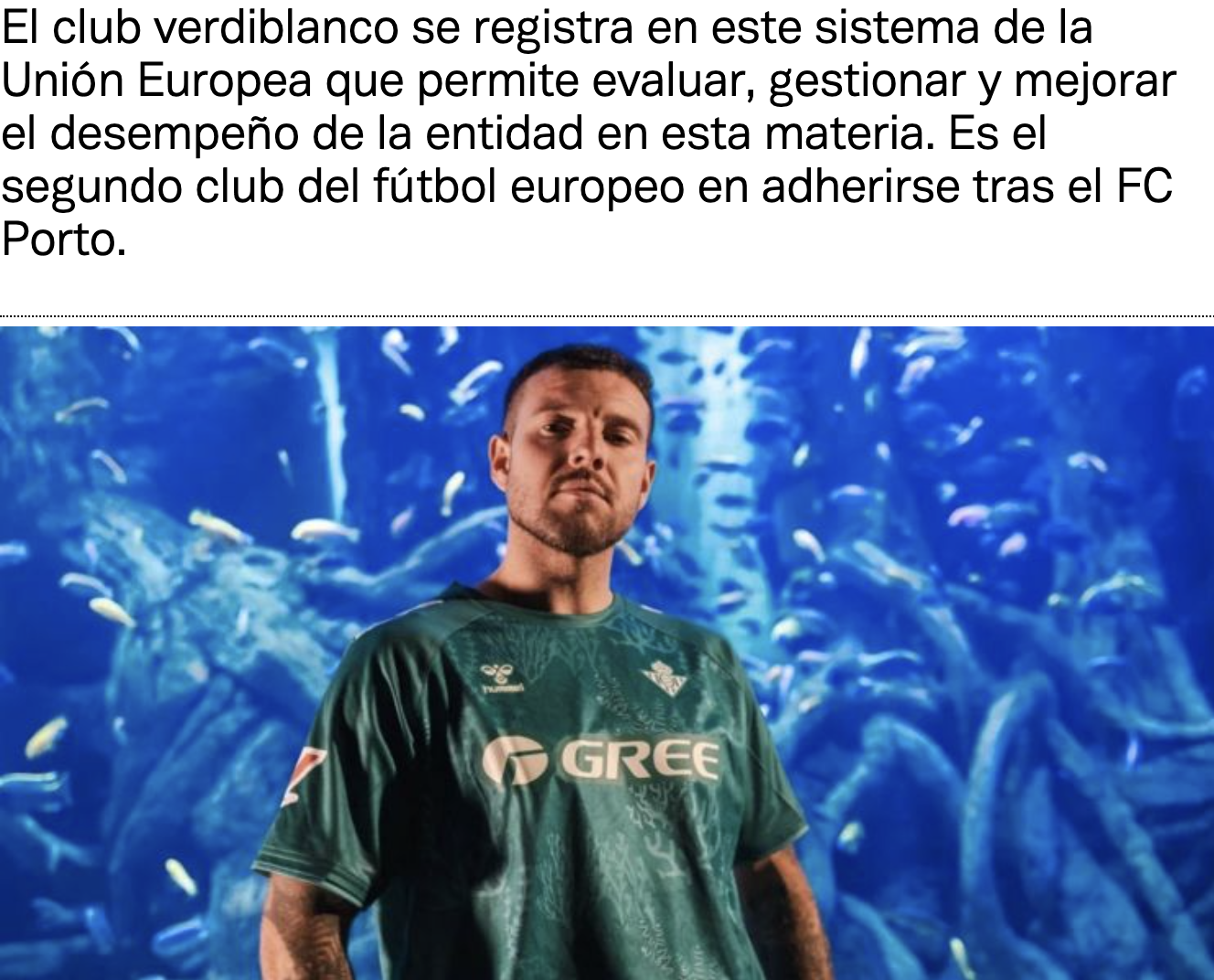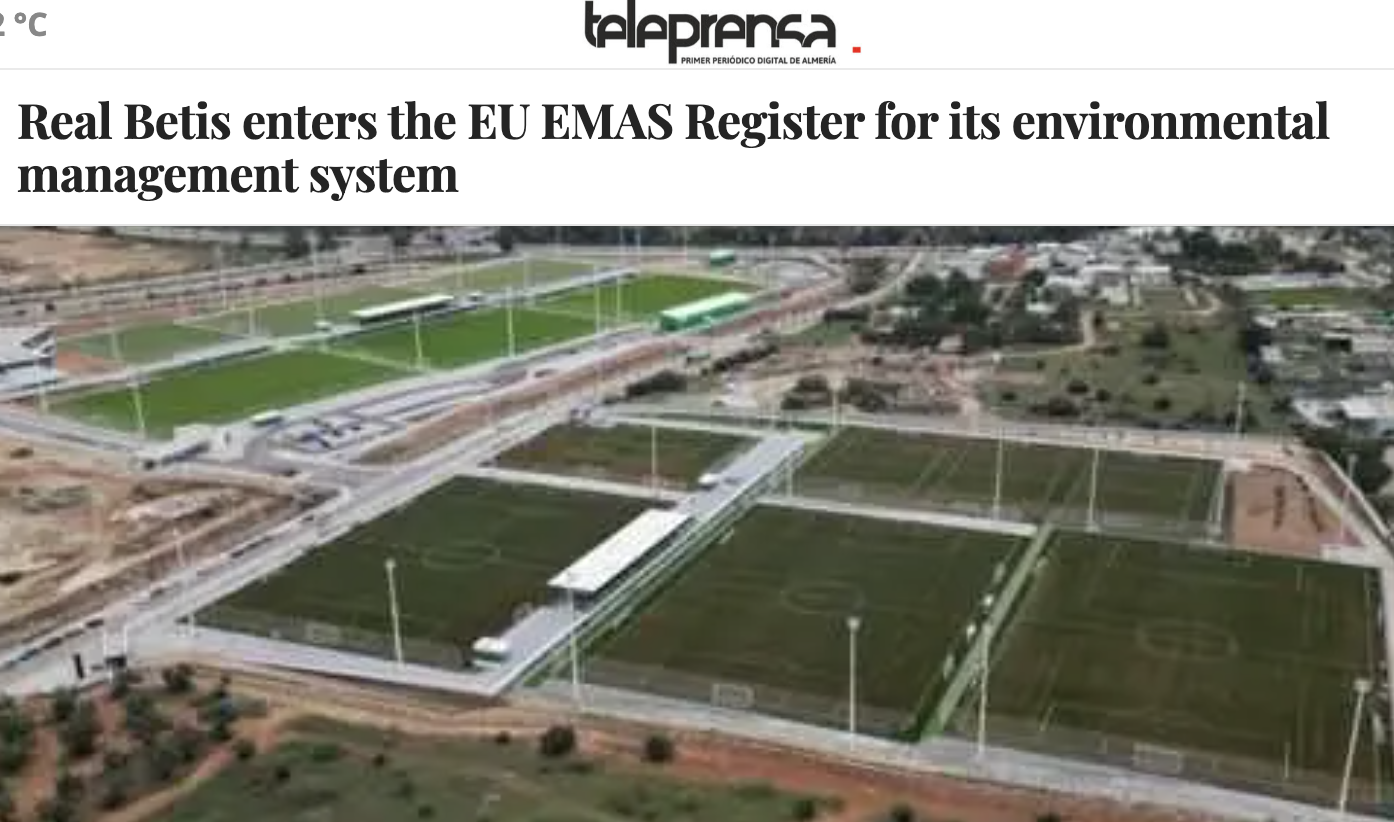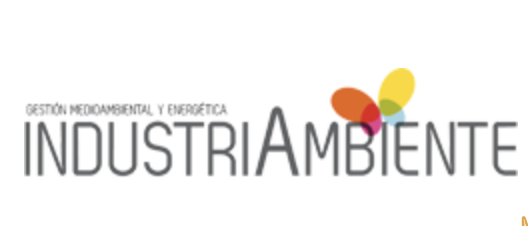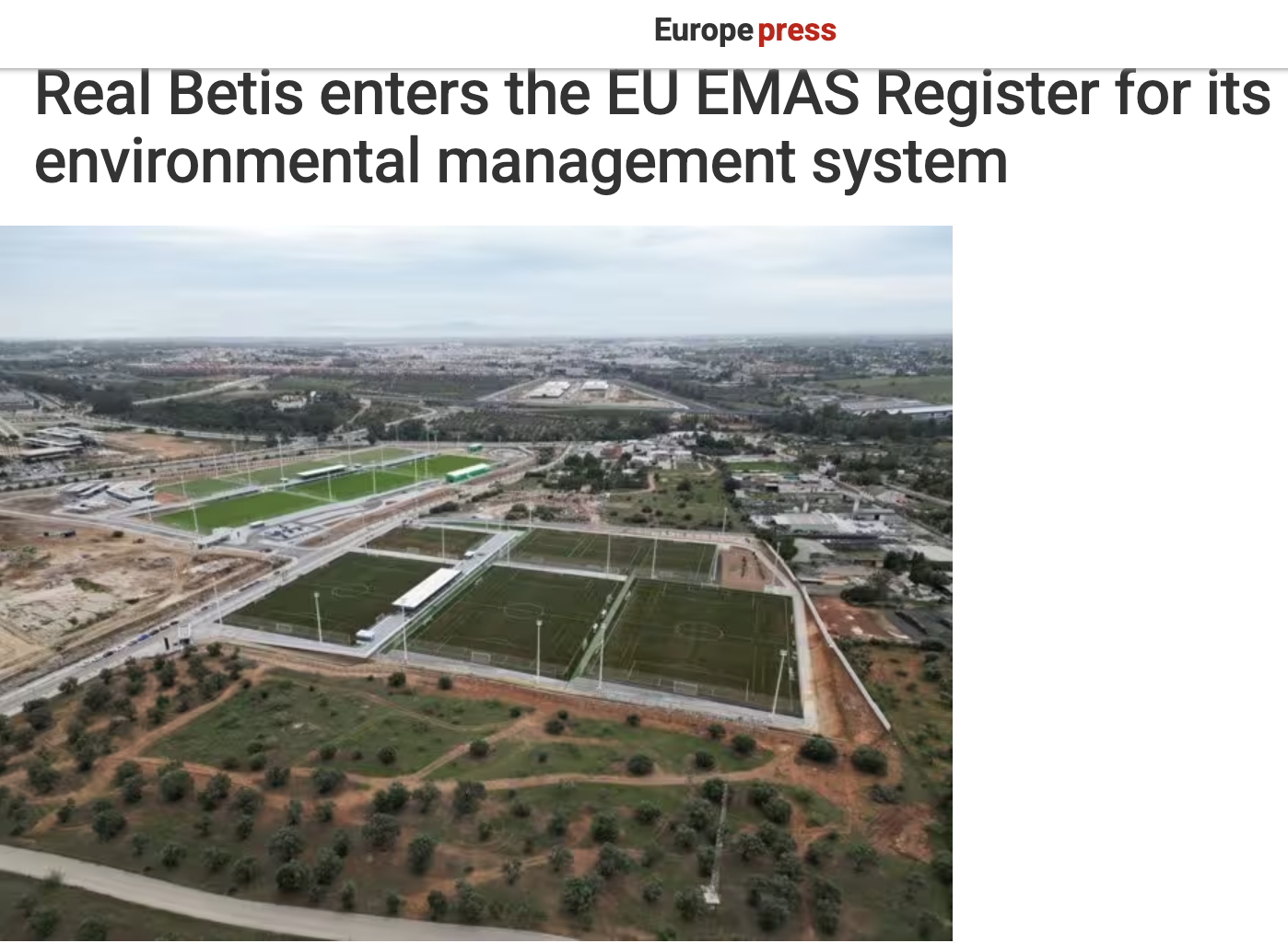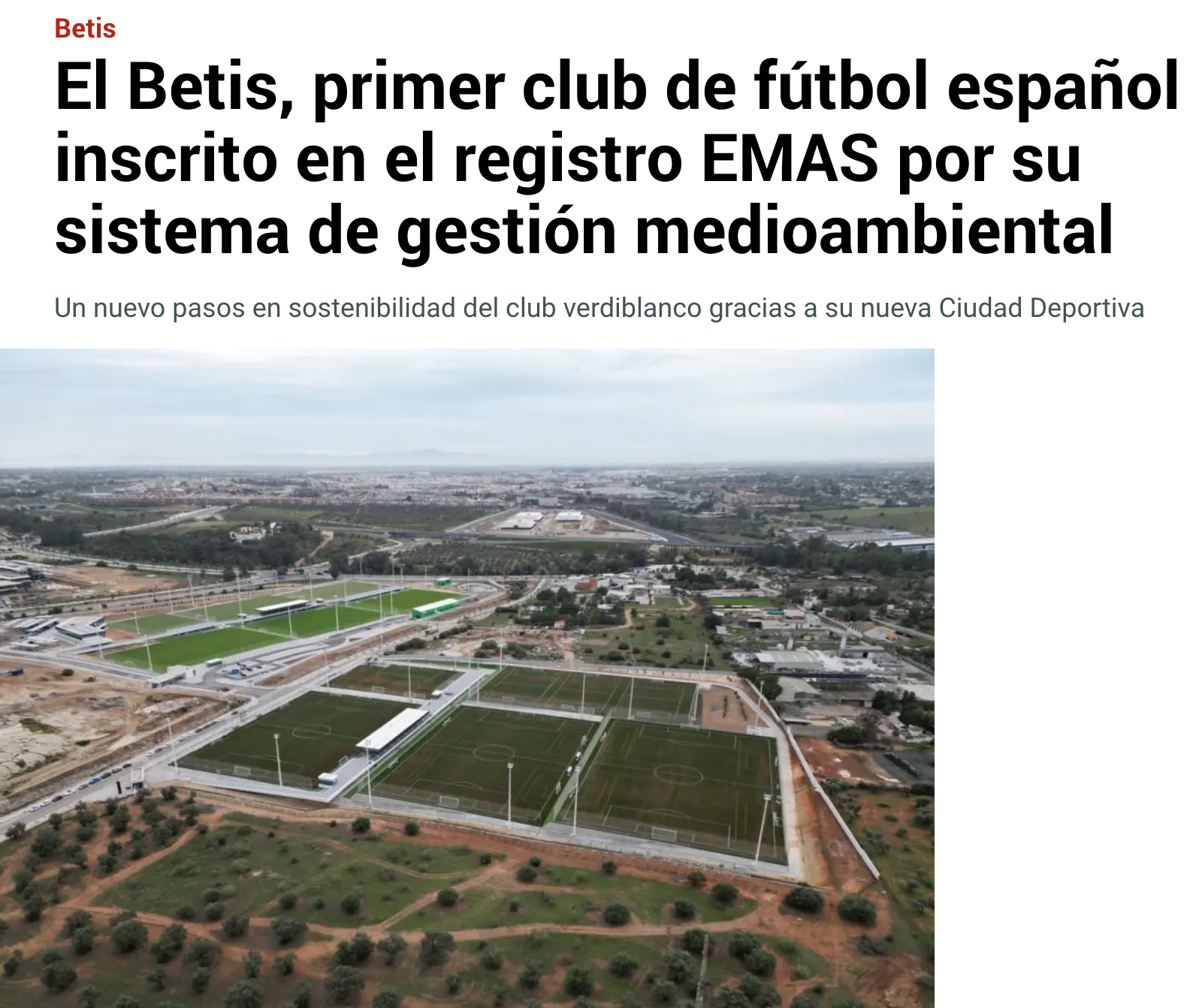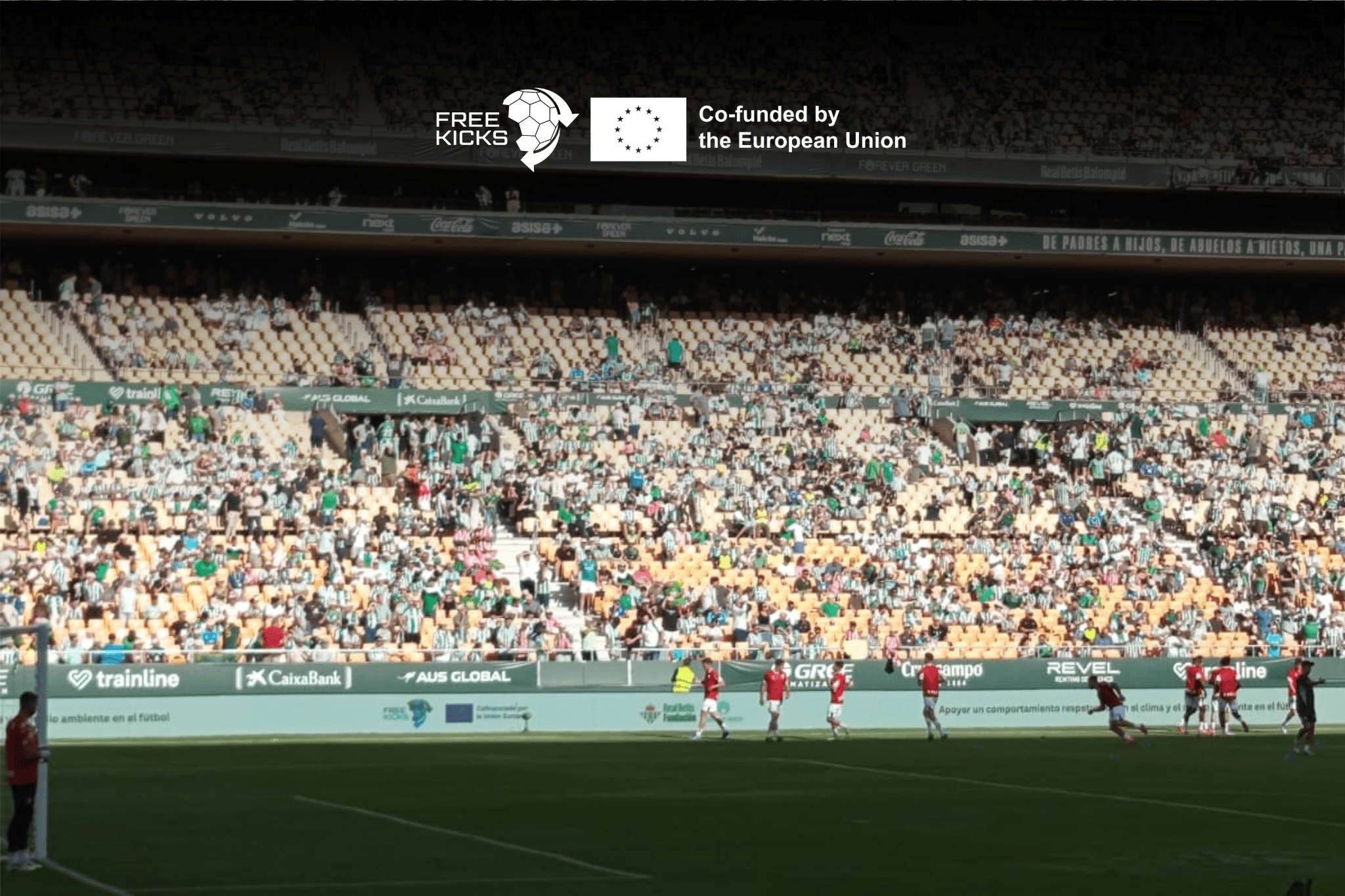El Confidencial: Beyond football, if you care about the environment, your team is Betis.
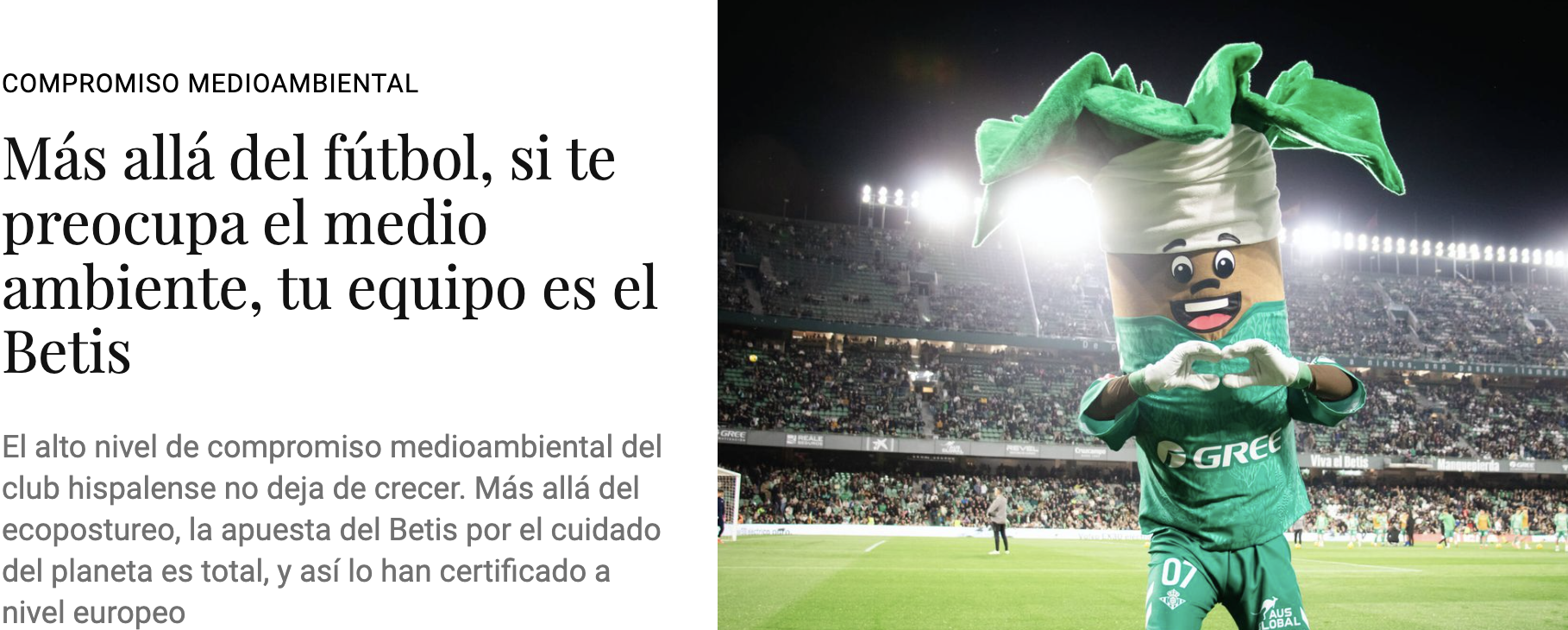
Disclaimer: This article has been translated using artificial intelligence and may not be entirely accurate. If there are any inconsistencies, please refer to the original version in Español.
The Seville club’s high level of environmental commitment continues to grow. Beyond eco-friendly practices, Betis is fully committed to caring for the planet, as certified at the European level.
One of the most important areas for mitigating climate change is the social one. Scientific reports, confirmed by the evidence, show that we are moving toward the most worrying scenarios . However, they also indicate that, with greater citizen collaboration , we still have time to avoid the worst. That is why it is so important to have the collaboration of those with the greatest capacity to reach society . And one of the sectors that stands out for this capacity is football, especially in our country.
Beyond filling stadiums and attracting millions of members and fans both at home and abroad, Spanish football clubs generate tremendous media attention and have an unparalleled capacity to capture the public’s attention . That’s why so many causes turn to clubs for support , such as the fight for the environment and against climate change. One of the largest and most admired clubs in Spanish football, Real Betis Balompié, has become deeply involved in this goal .
In conversation with El Confidencial, the manager of his foundation, Rafa Muela , explains why they have decided to take this step forward and what has led them to lead the world of football’s contribution to environmental care and climate action , at the Spanish and European levels.
“At Real Betis, we understand that football has a unique ability to reach millions of people around the world. Furthermore, we are a club with a huge social base and international reach, so we believe we have a responsibility to play an active role in addressing major global challenges, including climate change .”
Forever Green: the example to follow
To take on this challenge, Betis launched the “Forever Green” environmental sustainability platform five years ago. “We launched it,” Muela tells us, “out of the conviction that we can use the power of sport and football to inspire changes in lifestyle habits, reduce our environmental impact, and contribute to a more sustainable future .” And since then, they’ve continued to launch initiatives and set specific goals . All of this from a sector, football, where sustainability is still little known and enjoys little support .
For the Betis manager, “football is the most followed sport in the world and has a voice that few other sports or platforms possess. The climate crisis affects us all , including sports: from the availability of resources to the very practice of football in many regions of the planet.” That’s why “if clubs, leagues, and federations get involved, the positive impact can be enormous . We believe it’s not a question of whether football ‘can’ get involved, but that it ‘should’ do so.” And they lead by example.
Since its inauguration a year ago, the Rafael Gordillo Sports City has continuously incorporated measures, some of them highly innovative, to promote more efficient and sustainable management of the facilities, as well as to foster environmental protection in various ways. Its rainwater collection system collects rainwater in an irrigation basin for reuse within the facilities. On the artificial turf fields, the rubber granules have been replaced with cork , eliminating the dispersion of microplastics (one of the main sources of marine pollution) and reducing the temperature of the turf, which in turn significantly reduces water demand .
Regarding energy efficiency, an intelligent lighting system has been installed , reducing demand to strictly adapt it to sporting needs. The main building features a bioclimatic design that mitigates solar exposure and reduces the need for cooling in summer, and an aerothermal system for producing hot water that completely avoids the use of natural gas. The vehicle fleet is 100% electric , and the charging stations are powered by its own photovoltaic plant . In addition, the club is implementing a sustainable mobility plan to promote sustainable travel to the stadium for fans and staff.
The commitment of the fans
However, environmental efforts are now being focused on the renovation of the Benito Villamarín stadium , which will incorporate various measures aimed at continuing to advance in areas such as energy efficiency, sustainable mobility, and water conservation, among others. “We want our stadium to be a benchmark in Spain and Europe in terms of sustainable sports infrastructure,” Rafa Muela tells us. In fact, the independent international consultancy Brand Finance has already recognized it as the second most sustainable European football club (after Liverpool) and the first in La Liga . This is something the club, and its fans, are particularly proud of.
“We’ve noticed that our fans not only support the Club in sporting terms, but also in its social and environmental role. In addition, many Bétis fans actively participate in the initiatives we organize, such as cleaning and recycling campaigns , which shows that the message is getting through.” In this regard, it’s worth highlighting the “Greenest Fans” project , in which fans who attend matches to support the team voluntarily participate in selective waste collection , both inside and outside the stadium.
The planet’s t-shirt
Another notable initiative is the one worn by the players themselves on their shirts . In collaboration with the sportswear brand Hummel, through Parley for the Oceans , and as part of the “No Blue, No Green ” awareness campaign, a garment has been designed to raise awareness of the serious effects that the Asian algae Rugulopteryx okamurae is having on the Andalusian coasts.
This invasive species , considered one of the most harmful in the world , is destroying Andalusian marine ecosystems and the biodiversity they harbor , causing the loss of native species and seriously harming artisanal fishing . The T-shirt is made from these exotic algae and textile fibers from plastic bottles collected from the oceans.
Finally, and redoubling its commitment to the environment, Betis has just become the first Spanish club and the second European club (after FC Porto) to obtain the prestigious European Union EMAS certification . Far from eco-posturing and a declaration of purpose, this environmental management and auditing tool is subject to rigorous regulations that require an impact statement with specific data, which must also be validated by an external verifier annually.
For all these reasons, Betis has already received numerous awards and accolades , both nationally and internationally. But the club isn’t satisfied with that . “Because that’s not what motivates us,” says the manager of its foundation. “The recognition helps us give visibility to the project and amplify the message , but what we truly seek is to generate a positive impact on the environment . Our goal is to inspire society, other clubs, and our own fans to take action for the planet in their daily lives. What’s truly important is moving toward a more sustainable football and society .”
Hopefully , this example will spread to the rest of our football teams and more and more will compete in this other league: that of commitment to the planet .
Read the original article in Spanish here.
